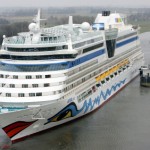Public’s memory is short and enthusiasm for cruising is high but there are some cruise survival tactics we can take away from this tragedy. See insurance Q&A below.
Don’t panic. Have a plan. Make your own decisions. In an emergency pack your passport, and other IDs, credit cards, all your cash and warm clothes. Listen to your instincts and don’t always trust the crew announcements. Why cash? Yes it you’re in the water and a full lifeboat comes by, cash could buy you a place on it. 
Do your research about the ship before you go. If you’re going to Antarctica, don’t book on a ship that was built to cruise the Baltics and doesn’t have an “ice rating”. Take your own safety into your own hands if there’s an emergency.
Each year 13 million cruisers take to the sea. Carnival, the world’s largest cruise ship operator (with 101 cruise ships) will continue to deal with the accident’s fallout. Stricter industry guidelines/rules for Ship Captains could minimize the room for “human error”.
Every day there are thousands of cruises, large and small, going out of ports worldwide. The fall out from the cruise accident will be short-lived. Think through your actions before you’re faced with an emergency.
Wondering about insurance?
Here our Q&A based on cruising and travel insurance, and specifically as it relates to the recent Costa Concordia accident. Interview with Carol Mueller, Vice President, Travel Guard.
· What would travel insurance do for travelers who were on the Costa Concordia?
Travelers would have been eligible for insurance coverage to help cover things such as their lost baggage and their personal items, plus medical expenses or medical evacuation in the event they had been injured. More importantly, it’s the immediate assistance when living through this tragic event that can help travelers in need. In addition to the insured benefits of travel insurance, every Travel Guard plan includes 24/7 emergency assistance – where in this event’s case, having help with replacing lost travel documents, personal identification, help getting messages relayed back home, locating an English speaking doctor, and assistance with new travel arrangements home. All of this and more are part of the 24/7 assistance services available.
· What isn’t covered?
It’s important travelers understand, basic plans do not cover fear of travel. For example, if you are scheduled on an upcoming cruise, you cannot cancel because you are now concerned about cruising and expect your travel insurance to cover you if you cancel. However, if you had purchased an upgrade to include Cancel For Any Reason coverage, you would be eligible to cancel for any reason and possibly receive partial return of your trip deposits.
· In light of the Italian tragedy, what should people who are going on cruises know about travel insurance?
Travel insurance covers you for the “what ifs?” while traveling. While the tragic accident involving the Costa Concordia off the coast of Italy is highly unlikely to occur again, it’s important that consumers understand travel insurance is really important for covering the more common missteps that occur while traveling. For example, when it comes to cruising, travelers invest a large up-front deposit that must be protected in case you need to cancel for a covered reason. And certainly, any US resident traveling outside the United States needs to make sure they have adequate medical expense and medical evacuation coverage.
Click here for:
Other disaster tips on GutsyTraveler